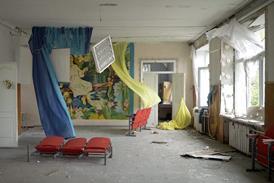The Brazilian National Cinema Agency(Ancine), an organ of the Ministry of Culture, will keep the screen quotasystem in place to protect local production against Hollywood hegemony in 2006.The system will ensure that a local film theatre with one single screen showsBrazilian movies for at least 35 days of the year - with the quota increasingaccording to the number of screens per complex.
Even though Ancine kept the quota from lastyear, the decision has been criticized by the exhibitor sector that expected areduction after the Brazilian films attendance dropped from 16.4m to 10.7madmissions in 2005.
"Because the attendance fell 35% werequested a reduction of two weeks for the 6 and 7-screen complex and one weekless for all the other cases,'' said Valmir Fernandes, president of Cinemark,Brazil's largest exhibitor, and the president of Abraplex, the nationalassociation of multiplex companies.
A 6-screen theatre, for example, isrequired to show Brazilian films for 378 days, with a minimum of 6 differentfilms. For a ten-screen complex, the numbers go up to 455 days and 10 titles.According to this system, 30% of the quota has to be accomplished in the first semester of the year. Thetheatres that do not respect the minimum days of showings will be subjected topenalty taxes.
"We took into consideration the performanceof Brazilian films in 2005 and the domestic line-up for 2006,'' said ManoelRangel, diretor of Ancine, at the official announcement. Approximately 60Brazilian films will be released this year and 45 of them have already gotdistribution deals. So far the number one domestic production is Se Eu Fosse Você (Fox), starring TVGlobo soap actors, with more than 1m admissions since its opening on January6th.
Last year TwoSons of Francisco (Columbia), a biopic about country music duo Zeze DiCamargo & Luciano, sold 5.3m admissions and grossed$16.2m (R$ 36.7m), becoming the most successful film overall at the box office.But this was an exception for a Brazilian film, since its success can be partlyexplained by the popularity of the duo in the country. Since their first hit, - o Amor (1991), the singers has sold 22million copies in Brazil.
Despite the phenomenon of Two Sons, the local marketshare dropped from 14.3% to 12% in the past 12 months. The second most seenlocal film of 2005 was Xuxa e o Tesouroda Cidade Perdida (Warner), but that did not reach even one third of the Two Sons' audience, selling 1.3m ticketsand taking $3.1m (R$ 7.1m).
The first screen quota in Brazil wasintroduced in 1932 and since then it has changed many times. In 2004 Ancinestarted doing the quota, which had previously been abandoned since 1990 - whenConselho Nacional de Cinema, Concine, was extinguished by president FernandoCollor de Mello.
Brazil has one of the lowest number ofscreens per capita in the world, with almost 100,000 people per screen.According to the lastest research conducted by Filme B, a local film companyspecialising in theatrical market numbers, the country has 1.997 screens for ahuge population of 181,581,024. This translates to a very low density of 90,927people/screen. Mexico, a comparable country, has a screen for every 32,000.


















No comments yet